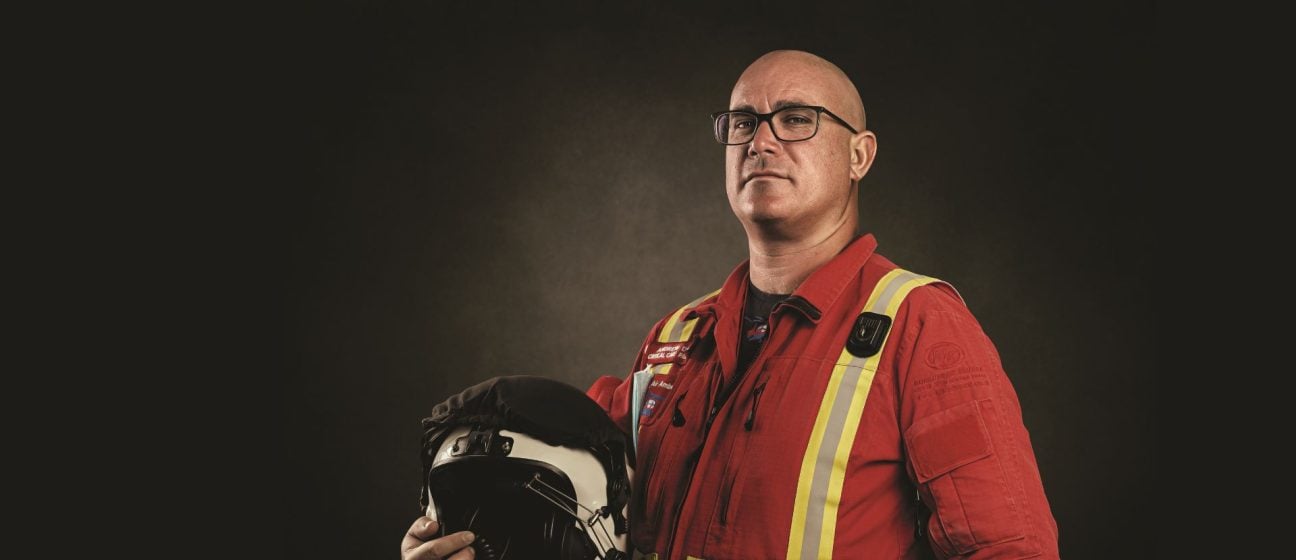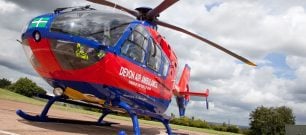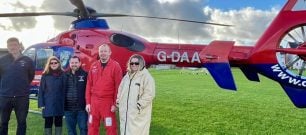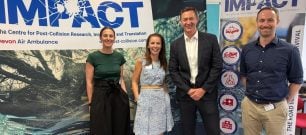
Andy speaks about the importance of providing comfort and patient dignity in his role when an incident takes a turn for the worse.
Who is Andy?
Andy is an Advanced Pre-hospital Practitioner and he speaks about the importance of providing comfort and patient dignity in his role when an incident takes a turn for the worse.
Andy's story
‘Seeing a patient recover from a medical or trauma incident to live a full life is a privilege beyond words. But sometimes, sadly, we cannot always help in every scenario: the illness or injury is just too severe. In such cases, all we can do is be present for those affected.
‘As a clinical team, we’re fortunate enough to be well supported emotionally in our work, which means we can help others.
‘We recently attended a patient who had suffered a cardiac arrest at home because of a suspected massive heart attack. Despite our best efforts the patient could not be resuscitated and, sadly, died at the scene.
‘We try to give their loved ones the opportunity to be present during, or when stopping resuscitation. We offer the patient as much dignity as possible, which could involve placing a pillow behind their head, removing any medical equipment, and providing coverage with a blanket or duvet.
On this occasion the family asked if the patient’s beloved dogs could see their owner, which the patient would have wanted. While I was completing the documentation, the eldest dog came over to me and laid its head on my boots. I took my own comfort from this gesture, which seemed to signal that it knew we had tried our best.
‘No two shifts are ever the same. We draw upon our shared knowledge, training and experience as a team, and we all work to standard ‘mental model’.
‘This model helps us to be and to feel prepared even before the red phone rings. My colleagues are great communicators who can rapidly process information and adjust to any given situation. They work in ‘flash teams’, sometimes working with people from other agencies that they have never met before.
‘It’s strange to think that when I was at school my careers advisor told me I could be an ambulance driver. But now what I do is far beyond anything I could have imagined back then. Although I’m not driving an ambulance, I’m flying in an aircraft, or responding in a Critical Care Car, to some of the most challenging situations there are. It is my job to be the person our patients and their family want to have with them at those times.’
As we are a charity that is entirely independent of government funding, we can make our own decisions about how our income is spent, which means we can focus on a patient’s recovery as well as their treatment.
Our Patient and Family Support Team is available to assist patients and their families with their recovery, helping them to fill in gaps in their knowledge, respond to questions and discuss the treatment we gave.
It’s entirely thanks to our supporters that we can offer this extended level of care.
Your support makes a lifesaving difference. Thank you.



